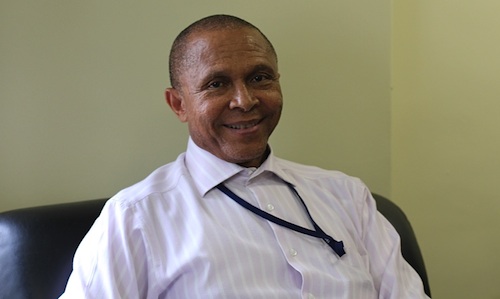
Icasa has dropped a bombshell on the telecommunications industry. The regulatory authority reckons Internet service providers and other telecoms licensees are entitled — right now — to access Telkom’s local loop.
The regulatory framework already exists for telecoms licensees to demand access to Telkom’s copper infrastructure to provide services, without having to wait for specific directives on local-loop unbundling.
The remarks, by Icasa councillor Thabo Makhakhe, are likely to prove explosive in a market that is anxious for the local loop — the “last mile” of copper cables that connects consumers to Telkom’s network — to be unbundled.
Icasa says Telkom’s local loop can already be accessed by telecoms licensees if they make use of facilities-leasing regulations, published in 2010.
But it’s not that simple. Fixed-line rival Neotel has already tried this tack and it says Telkom refused to accept a request for access to the local loop, potentially setting the stage for a showdown.
Makhakhe says the facilities-leasing regulations, read with the legislation governing telecoms operators, allow competitors to request access to Telkom’s copper infrastructure.
In terms of the Electronic Communications Act, the local loop is considered an “essential facility”, since it is a key aspect of the telecoms environment.
In many markets, incumbent operators like Telkom have used their control of this infrastructure to squeeze out competition by charging high prices for access.
Icasa’s facilities-leasing regulations are meant to prevent abuse by dominant operators and force them to be more transparent about the services they lease to other operators. Makhakhe says that because the local loop is an essential facility, Telkom’s rivals can use the regulations to gain access to it.
However, Telkom does not agree with Icasa’s assessment. It says its last-mile copper infrastructure should not be considered an essential facility.
Telkom’s understanding of the legal definition of an essential facility is that it “cannot feasibly be substituted”. However, it says the mobile operators have created a substitute, which it calls the “wireless local loop”.

Icasa’s expectation that facilities-leasing regulations can be used as the basis for local-loop unbundling could be tested soon in light of Telkom’s decision to refuse Neotel’s request for access.
Neotel says it hasn’t decided yet what its next step will be. But it has several routes it can follow, one of which is to approach Icasa with a formal complaint.
Neotel doesn’t need access to the local loop in terms of its business plan, but having access to the copper that reaches consumers would be a big advantage.
In an earlier interview with TechCentral, Neotel chief technology officer Angus Hay said gaining access to Telkom’s physical infrastructure was the best way of boosting competition in broadband services.
Makhakhe says Icasa will apply its mind at a meeting next week about Telkom’s argument that the local loop is not an essential telecoms facility.
However, Makhakhe says Telkom needs to remember that policy and regulatory interventions are there to promote competition. “Sometimes I just want to tell them to open it up and make it available,” he says.
Makhakhe and his colleagues will use the next few months to consult industry players and thrash out what must still be done to ensure orderly access to the local loop. “What we want are regulations that will force access to be transparent and fair,” he says.
He says many operators don’t actually know how they can get access to the cables and what elements of the local loop they are entitled to request access to. “That is what we want to make clear when the time comes to implement regulations.”
Even if it wants to pick a fight with Icasa, Telkom could soon find itself between a rock and a hard place. Communications minister Roy Padayachie has already made it clear that the local loop must be unbundled by November.
Despite signs of reluctance, Telkom may be expecting the inevitable.
Makhakhe says it appears to him that Telkom is planning to spin off the local loop into a separate infrastructure company, similar to what the UK’s BT Group did when it established Openreach.
Telkom has already begun allowing “co-location” with other operators in its telephone exchanges, though at the moment this is mainly so those operators can get access to wholesale telecoms services.
Though Telkom has warned that the November deadline for local-loop unbundling is not realistic, Makhakhe says the approach of using facilities-leasing regulations means the deadline will not only be met, but will be done with time to spare. — Candice Jones, TechCentral
See also: BT’s local-loop lessons for Telkom | Local loop the last domino to fall | Telkom frets over November local-loop deadline
- Subscribe to our free daily newsletter
- Follow us on Twitter or on Facebook




